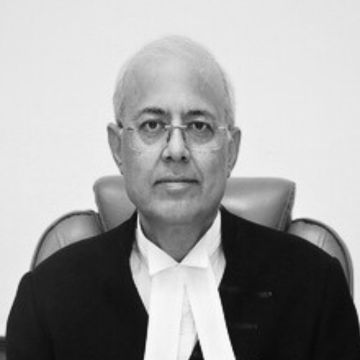Manmohan

Manmohan
Sitting Judge of the Supreme Court of India
Assumed Office5th Dec, 2024
Retires On16th Dec, 2027
Previously
Chief Justice of the Delhi High Court29 September 2024 - 4 December 2024
Acting Chief Justice of the Delhi High Court9 November 2023 - 28 September 2024
Judge of the Delhi High Court17 December 2009 - 8 November 2023
Additional Judge of the Delhi High Court13 March 2008 - 16 December 2009
Senior Advocate of the Delhi High Court18 January 2003 - 12 March 2008
Advocate at the Delhi High Court1987 - `17 January 2003
Profile
Early Life and Education
Justice Manmohan was born on 17 December 1962 in Delhi. His father, the Late Jagmohan Malhotra, was a former member of Parliament and a member of the Bharatiya Janata Party (BJP). Before joining the BJP, he was a member of the Indian National Congress party. He was also the governor of Jammu and Kashmir, and the Lieutenant Governor of Delhi and Goa.
Justice Manmohan completed his early education from Modern School, Barakhamba Road, New Delhi. He graduated with a B.A. (Hons.) in History from Hindu College, University of Delhi. He then pursued LL.B. from Campus Law Centre, University of Delhi, and completed his law degree in 1987. Justice B.V. Nagarathna, sitting judge of the Supreme Court, was from the same 1987 batch as Justice Manmohan.
Career as an Advocate
Upon graduation, Justice Manmohan enrolled as an Advocate at the Bar Council of Delhi in 1987.
Over the next two decades, he argued in civil, criminal, constitutional, taxation, arbitration, trademark and service litigation cases. During this time, he appeared before the Delhi High Court and the Supreme Court. He also served as Senior Panel Advocate for the Union Government in the Delhi High Court and the Supreme Court. Notably, he argued in the Dabhol case where the Maharashtra Power Development Corporation filed a petition alleging oppressive and prejudicial conduct by Dabhol Power Company’s board. He also appeared in the Hyderabad Nizam’s Jewellery Trust matter which dealt with ownership, auction, and valuation disputes regarding the Nizam’s valuable jewellery. He appeared in legal disputes concerning the Claridges Hotel in New Delhi as well.
He was designated as a Senior Advocate of the Delhi High Court on 18 January 2003.
Career as a Judge
Five years later, on 13 March 2008, Justice Manmohan was appointed as an Additional Judge of the Delhi High Court. Within a year and a half, on 17 December 2009, he became a Permanent Judge of the High Court.
On 9 November 2023, he was appointed as Acting Chief Justice of the Delhi High Court, and less than a year later, in September 2024, he was sworn-in as Chief Justice of the High Court.
On 28 November 2024, the collegium led by Chief Justice Sanjiv Khanna recommended Justice Manmohan’s elevation to the Supreme Court. The recommendation came roughly two weeks before his retirement from the Delhi High Court. As per the resolution, Justice Mannmohan was at SI. No. 2 in the combined all-India seniority of High Court Judges. Further, it noted that Justice Manmohan’s elevation to the top court would bring regional representation of the Delhi High Court to the Supreme Court bench. At that time, CJI Khanna was the only sitting judge from the Delhi High Court.
Justice Manmohan will retire on 16 December 2027 after a three-year long tenure at the Supreme Court.
Notable judgements
In Mohd. Ahmed v Union Of India & Ors (2014), he authored the judgement where he directed the Delhi government to provide enzyme replacement therapy at AIIMS free of charge to a minor child born to parents belonging to economically weaker sections of society. The judgement read, “Just because someone is poor, the State cannot allow him to die.” Further, it held that the Union and Delhi government had failed to discharge their constitutional obligation to provide medical aid on a “fair, reasonable, equitable and affordable basis”.
In Dharampal Satyapal Limited And Anr v Union Of India Through Secretary (2024), a bench led by Justice Manmohan, upheld the regulation mandating 50 percent statutory health warnings on pan masala packaging. The bench held that public health took primacy over commercial interests.
In Social Jurist, A Civil Rights Group v Government Of Nct Of Delhi & Ors (2024), Justice Manmohan’s bench of the Delhi High Court criticised the Delhi government for not providing uniforms and textbooks to over 6.5 lakh students in municipal schools in Delhi. The bench considered the state government’s inaction as a violation of the right to education under Article 21-A. The Delhi government had cited the detention of Chief Minister Arvind Kejriwal as the reason behind the delay in discharging statutory obligations under the Right to Education Act. The Court ordered immediate procurement of the materials, overriding budgetary limits, and asserted that governance must prioritise children’s education over bureaucratic constraints.
